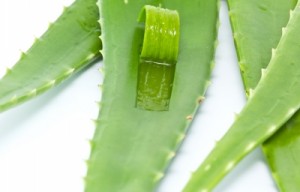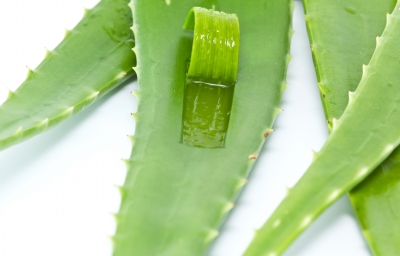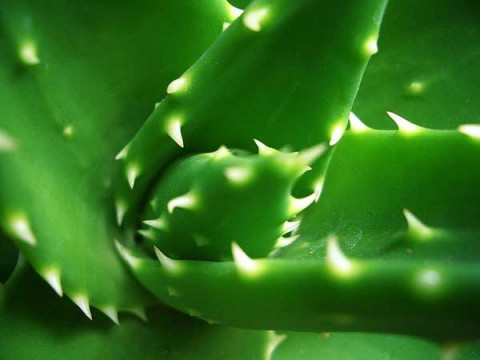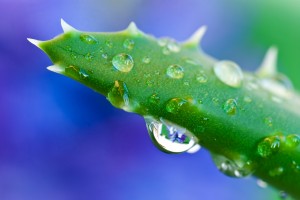Can you halt the march of your receding hairline naturally? Wondering how to prevent hair loss?
There’s a lot of research that says you can. That’s welcome news to anyone who’s wondered how to prevent hair loss and ever seen the price tag on Rogaine – sticker shock comes to mind. Here are a few herbs and other natural remedies to help prevent hair loss.
How to Prevent Hair Loss: Aloe Vera Gel Soothes the Scalp
The gel from the Aloe Vera plant soothes skin and acts as an anti-inflammatory when applied externally. By massaging the gel into the scalp, the pH balance of the scalp is restored and this helps regrow hair. Aloe also helps the hair retain water, and since one quarter of the hair is made up of water, this important function of Aloe Vera enables hair to remain nourished.
How to Prevent Hair Loss:  Polygonum Multiflorum is Used to Recolor and Regrow Hair
Polygonum Multiflorum is Used to Recolor and Regrow Hair
Polygonum is known in Chinese medicine as He Shou Wu. For centuries this herb has been used to treat hair loss. Recently, the American Botanical Council reported that this herb may be useful to restore color to graying hair, as well as stimulating hair growth.
How to Prevent Hair Loss: Ginseng Stimulates Hair Growth
Ginseng is another herb long used in Chinese medicine. The herb is an adaptogen, helping the body adapt to stress, which is known to be a cause of hair loss. Ginseng is found in shampoos as well as tinctures that can be taken internally.
How to Prevent Hair Loss: Lavender Stimulates the Scalp
Lavender oils can be applied to the hair and massaged into the scalp. The herb draws the blood to the scalp, which helps prevent hair loss.
How to Prevent Hair Loss: Thorn Apple Prevents Hair Loss
Thorn Apple, also known as Jimsonweed, is a toxic herb that has been shown to help regrow hair. Used in Chinese herbal medicine for thousands of years to treat digestive disorders and even tuberculosis, Thorn Apple contains toxins known as scopolamine and hyoscyamine. The toxic alkaloids are also used in medicine as a gastric antispasmodic. The dried leaves are used to treat cough. Drinking fruit from the juice staves off hair loss, but high doses can cause irregular heartbeat and even coma.
How to Prevent Hair Loss: Dong Quai Restores Hormonal Balance and Grows Hair
Known as Dong Quai in Chinese medicine, the herb Angelica is used to stop hair loss. The active ingredient is an herbal form of a testosterone stimulant, called a phytotestosterone.
Learning how to prevent hair loss can be easier if you know what causes it. There are both medical and hormonal factors, as well as external influences such as physical or emotional distress. Understanding why you are losing your hair will help you formulate the right hair loss treatment.
Most people normally shed 50 to 100 hairs a day. But with about 100,000 hairs in the scalp, this amount of hair loss shouldn’t cause noticeable thinning of the scalp hair. As people age, hair tends to gradually thin. Other causes of hair loss include hormonal factors, medical conditions and medications.
How to Prevent Hair Loss: Hormonal Factors
The most common cause of hair loss is a hereditary condition called male-pattern baldness or female-pattern baldness. In genetically susceptible people, certain sex hormones trigger a particular pattern of permanent hair loss. Most common in men, this type of hair thinning can begin as early as puberty.
Hormonal changes and imbalances can also cause temporary hair loss. This could be due to pregnancy, childbirth, discontinuation of birth control pills or the onset of menopause.
How to Prevent Hair Loss: Medical Conditions
A variety of medical conditions can cause hair loss, including:
- Thyroid problems. The thyroid gland helps regulate hormone levels in your body. If the gland isn’t working properly, hair loss may result.
- Alopecia areata. This disease occurs when the body’s immune system attacks hair follicles — causing smooth, roundish patches of hair loss.
- Scalp infections. Infections, such as ringworm, can invade the hair and skin of your scalp, leading to hair loss. Once infections are treated, hair generally grows back.
- Other skin disorders. Diseases that can cause scarring, such as lichen planus and some types of lupus, can result in permanent hair loss where the scars occur.
How to Prevent Hair Loss: Other Causes of Hair Loss
Hair loss can also result from:
- A physical or emotional shock. Many people experience a general thinning of hair several months after a physical or emotional shock. Examples include sudden or excessive weight loss, a high fever or a death in the family.
- Hair-pulling disorder. This mental illness causes people to have an irresistible urge to pull out their hair, whether it’s from the scalp, their eyebrows or other areas of the body. Hair pulling from the scalp often leaves patchy bald spots on the head.
- Certain hairstyles. Traction hair loss can occur if the hair is pulled too tightly into hairstyles such as pigtails or cornrows. – Source



 Polygonum Multiflorum is Used to Recolor and Regrow Hair
Polygonum Multiflorum is Used to Recolor and Regrow Hair